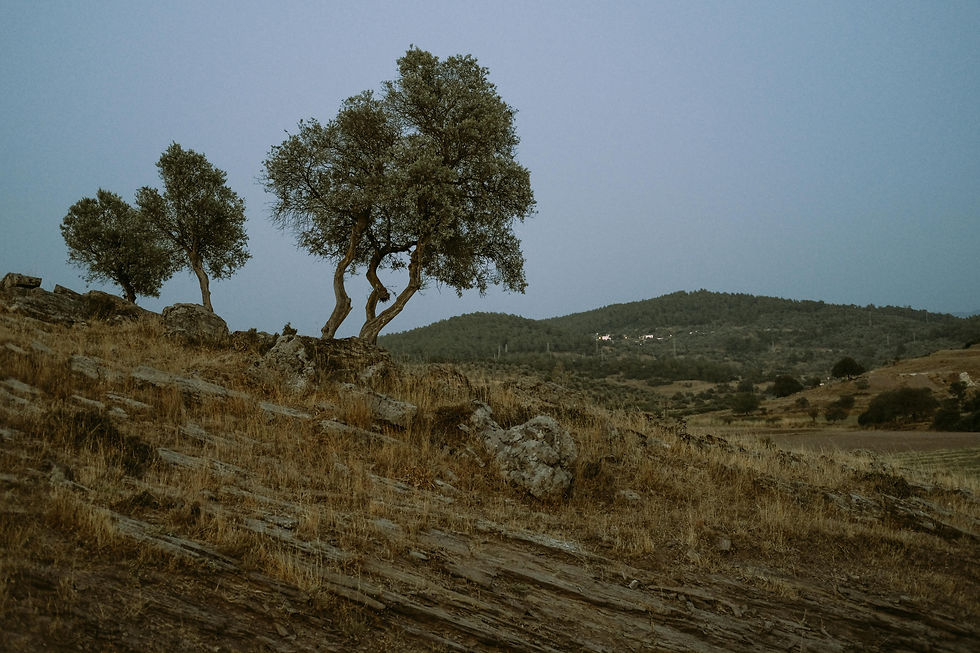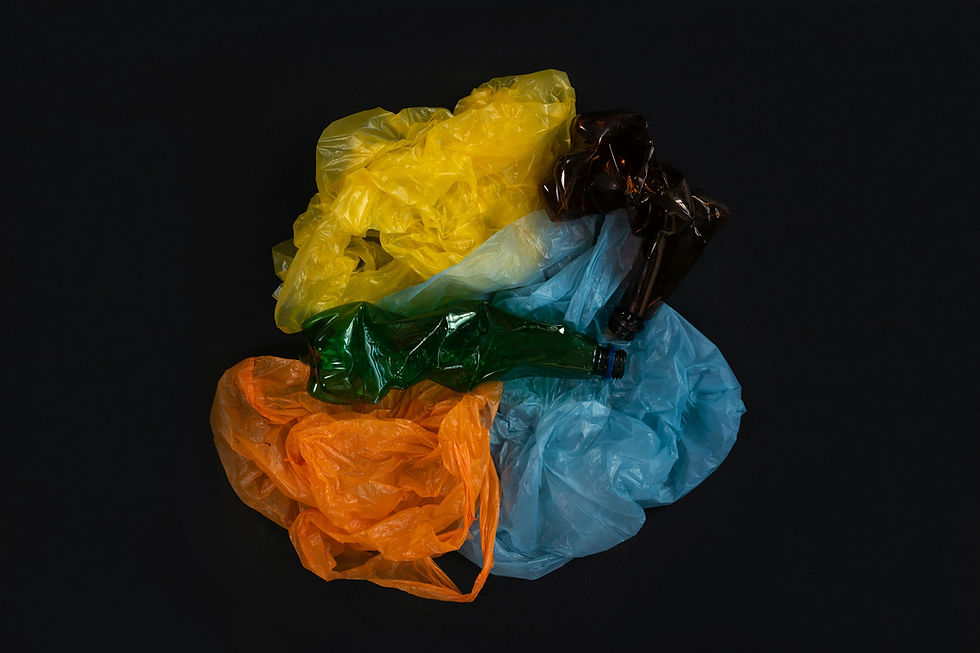A response to ‘Invisible Prejudice’ and Racial Microaggressions
- Anwaar Ahmed

- Jun 23
- 6 min read

After spending the bulk of my life living around the world, last summer I returned to Rome, the Città Eterna, the city of my birth and childhood – the most beautiful and dysfunctional capital in the Global North that I know and love.
Although both my parents were Pakistanis and spoke Urdu and Punjabi at home, I grew up speaking Italian fluently, without any noticeable trace of a “foreign” accent. Unlike in English, in Italian there are two second-person singular pronouns most commonly used to address another person: (1) tu is the informal way of saying "you," used with people you know well or those of your own age or younger, and (2) lei is the formal "you," used when addressing someone older, in a business setting, when showing respect, or especially to someone unfamiliar.
Given this distinction, why then – when it’s my turn to be attended in a pharmacy, grocery store, bank, or in any other context involving verbal interaction, whether alone or surrounded by others – why am I addressed using tu whereas any white Italian with lei? And why, I again ask, when I am waiting to be seated at an eatery, do women often (yes, often) remove their handbags from the seat next to them and place them on their laps when they see me? And during initial conversations in Italian with locals I don’t know, why am I regularly asked which country I am from? And why, and why, and why…
Is it me or them? These are manifestations of what is commonly known as racial microaggression: “brief and commonplace daily verbal, behavioral, or environmental indignities, whether intentional or unintentional, that communicate hostile, derogatory, or negative racial slights and insults toward people of color.” Related to this is racial stereotyping, which I understand as reflexive and exaggerated mental pictures held about all members of a particular racial group. Racism is structural and built into society. As an unjust system, it intersects with patriarchy, class, and poverty in particular. Often, like when my presence causes a white person to move their bag, there’s an evident intersection between racism, poverty and inequality: the assumption that black and brown folks don’t enjoy the same financial means and therefore will resort to theft. This crossing with other unjust systems makes racism significantly more entrenched.
Cognitively, most white people I know can understand what I refer to as invisible prejudice. But invariably, they miss it in “real time” as it happens, and only “understand” it if explained after the fact. Although there’s acknowledgement of and sympathy for my “frustration,” no one on the outside can truly know what someone on the inside, who wears the skin, actually sees, hears, feels, and experiences.
There are two aspects at a deeper, more purposeful level that interest me. One is understanding the reasons I experience negative emotions like shame, embarrassment, frustration, anger, and confusion when subjected to racial microaggression and stereotyping. Is it my insecurity, my paranoia, my interpretation, the proverbial “chip on my shoulder”? Or is it something else, something real yet invisible to others? These questions actually prevent me from speaking openly about these incidents and challenging them.
Are my emotions solely to blame for my blocks? Am I worried about playing victim or being labelled as such? What is it that obstructs me from speaking up about the way these situations affect me? Or is it the fatigue or fear that accompanies those confrontations? How can I transform negative energy into an opportunity to create a lasting breakthrough in liberation and, consequently, enhance the quality of my personal evolution?
Breaking free from internalized oppression
I used to think that racism was only the result of ignorance and dismissed how I felt as an inappropriate response to it. Now I realise that, while recognising that ignorance can be a contributing factor to racism, it's not the sole cause. In fact, as the title of one article suggests: “Racism isn’t about ignorance. Some highly educated people have upheld systemic inequality.” Racism is far more complex than simply a lack of knowledge, with historical, societal, psychological, and power-related dimensions. In my case, cultural norms and stigma during my early formative years played a fundamental role in a long-term inferiority complex. I recall how my mother used to warn me against going to the beach or not covering myself on sunny days because I would “turn black,” causing the family embarrassment. My parents carried with them the belief that fairer skin equated to a more secure position in society. Perhaps that form of repetitive “brainwashing” found a home somewhere deep within me. Perhaps that’s why for many years I never removed my T-shirt at the beach. My strong desire to integrate with the local play circles during early childhood proved to be a key factor, as well. I recall that in the compound where we kids gathered to play, some would refer to me as “blacky” and reminded me that I wasn’t like one of them. I was picked on and teased. That too contributed to internalizing longer-term patterns that brewed over time.
I have since learned that invisible power is the form that power takes through deeply embedded beliefs that shape how I see myself and my place in society, effectively internalizing the oppression I experience as somehow “normal” or “natural” rather than fundamentally unjust.
I have now been committed to self-knowledge, personal, and spiritual development for years. I have slowly but surely dismantled many of my beliefs, shedding masks and learning to follow my inner compass without guilt, and value being true to myself. The personal anxieties arising from external microaggressions and stereotyping no longer control me as they did before. Of course, there are many means of achieving this. My inner work has helped me to develop a practice that aims to convert anger into compassion. There is a sense of awareness that has replaced my previous concerns about negative repercussions if I confront difficult individuals. Breaking the emotional chains that kept me hostage has also catalyzed my ongoing work for justice. In turn, this has encouraged me to realize that while speaking about racism can be challenging, it is paramount for true freedom in our journey.
Devoting ourselves to Radical Systems
I cannot stress enough the importance of replacing our “inherited” lens that leads us to accept what we each experience. During the transformative and highly-rewarding Justice Based Approach Foundation Course, we understand the necessity to “refocus our actions and decisions on models that dismantle unjust systems and hold power to account in order to shift the planet towards social and environmental justice.” To quote Wayne Dyer, the American motivational speaker: “If you change the way you look at things, the things you look at change.”
However, I would add that as conscious change makers, it is our personal responsibility to actively drive the shifts we seek. Just changing perspectives is not enough to change the planet. Mahatma Gandhi lived and taught by the maxim to “be the change you wish to see in the world.” For this crucial transformation to take place, embracing Radical Systems – one of JBA’s five pillars – is imperative for social change that is just. At its core, Radical Systems means that any change we seek in the world necessitates that we invariably devote ourselves to the root causes of injustice rather than continuing to apply surface solutions that have minimal long-term impact. It’s about being brave and calling out broken ideologies and about creating viable alternatives to the systems of power that affect all parts of our lives each day. To be felt and to be heard, to be impactful and sustainable, this must be born and live within us, for how we think and behave defines us.
Away and above the needful and purposeful personal development work, my experience around racial microaggressions calls for systemic change, because racism is not a phenomenon that merely happens. Rather, it is embedded into a multitude of social behaviours, institutions, laws, and norms. Systems that are erected for the advantage of a few but disadvantage the rest will invariably lead to injustice. It is by transcending these broken systems and creating alternative, Radical Systems and models that we can aspire to move closer to racial justice in our world.
Anwaar Ahmed, a former investment banker with Morgan Stanley, applies his life experience and competencies towards social development and humanitarian projects aimed at justice, freedom and equality around the world through a path of Karma Yoga. He currently resides in Rome where he is an active member of the BDS movement and of Assopace Palestina as well as a Fellow in United Edge’s Justice Collective.









Amazing piece, challenged and intrigued but most of all reminded to do something at a personal level, because this seats right where I am seated, where my children will seat, at my work and most importantly at my door step, regardless of where I am, we are all at the center of everything we are. Thought provoking, great work Anwaar!